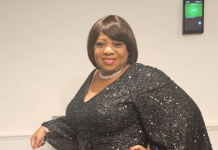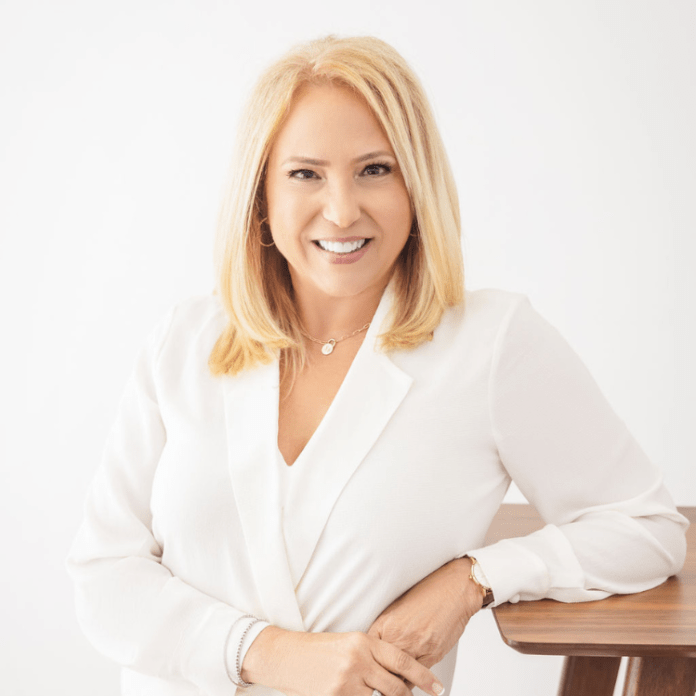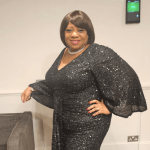Michele D’Amico has spent a lifetime reclaiming her voice—and now she helps others do the same. From walking to ratify the Equal Rights Amendment in the ’70s to coaching leaders through personal and professional transformation, Michele’s journey is a powerful blend of purpose, resilience, and heart. With a background in clinical psychology and a passion for emotional intelligence, she challenges outdated ideas of leadership and empowers women to speak up, show up, and lead without apology. Her upcoming book Unmuted is both a personal manifesto and a rallying call for women everywhere to rise with authenticity, courage, and compassion.
What led you to do the work you do today?
I’ve always been passionate about women’s issues and women in leadership. I walked to ratify the Equal Rights Amendment back in the 70’s! I was first accepted into law school, but had to put it on the back burner due to my divorce and being a single mom of a toddler with no family around to help. As my daughter got a bit older, I decided to get a PsyD in Clinical Psychology. Something I’d always been interested in. While doing so, I had to find work since I was a single mom, and I found coaching. I fell in love with coaching, and once I graduated, decided to make that my career. I work with both men and women and love it. Some of the work is in life coaching and some is in leadership coaching. My psychology degree is extremely helpful not only in understanding human behavior and the human condition, but also in changing those behaviors that don’t serve us any longer.
What does it mean to lead with heart, not just strategy?
For me, this is about compassion and empathy. The foundation of my practice is emotional intelligence and empathy. When we can put ourselves in someone else’s shoes and have compassion, we are leading with heart. When we strive to listen so that we understand someone else and bring trust and safety into the workplace we are leading with heart and not just strategy. For me, diverse voices are the heart of an organization.
Why do so many women hold back their voice in leadership?
Oh, this is such a loaded question for me! I am currently in the editing phase of my book “Unmuted,” about women’s voices both individually and collectively and how we lose them and sometimes don’t even know we have a voice that is separate from our family of origin, our spouses or society.
When it comes to leadership, we are swimming in male waters. It’s that simple, and we must navigate those waters carefully. We tread water just to stay afloat sometimes, and that means not using our voice. We don’t want to be labelled “too pushy” or “too aggressive,” and oftentimes we aren’t even given the opportunity to speak up or are not listened to if we do. I could go on forever on this topic! I’ll just leave it at that.
What’s one belief about leadership you think we need to let go of?
The idea that leaders have to have all the answers.
Real leadership isn’t about certainty; it’s about curiosity, courage, and connection. Of course, we want our leaders to be knowledgeable, but when we cling to the belief that good leaders should always know what to do, we create pressure to perform instead of permission to grow. It stifles innovation, discourages feedback, and isolates the very people in charge.
The most effective leaders ask great questions, admit when they’re unsure, and create environments where learning is valued more than ego. Letting go of, “I should already know this” opens the door to psychological safety, shared ownership, and real transformation.
What does a safe and healthy workplace feel like?
A safe and healthy workplace feels like exhaling. It’s the kind of environment where people can speak up without fear, ask questions without judgment, and admit mistakes without risking their credibility. Psychological safety is at the heart of a healthy workplace. It means you can be yourself and still be respected, even when you’re vulnerable or uncertain.
In this kind of culture, healthy tension leads to better ideas, not personal attacks. Leaders model accountability and empathy, and everyone is encouraged to contribute, not just the loudest voice in the room. When psychological safety is present, people feel energized rather than guarded. There’s clarity, trust, and a shared commitment to growth, not perfection.
It’s not just about feeling comfortable. It’s about feeling seen, heard, and valued. That’s where real innovation, collaboration, and leadership take root.
Psychological Safety in the workplace is something I feel very strongly about. People want to feel valued and valuable in the workplace. I’ve written two books on the subject. “Clear & Purpose Driven – Leading with Integrity, Even When It’s Hard” (on Amazon)and “Psychological Safety in the Workplace: Building a Safe Culture from the Inside Out” (coming soon).
How can leaders create more fairness and respect at work?
Fairness and respect start with how leaders show up consistently, transparently, and with curiosity. It means setting clear expectations, holding everyone accountable (including themselves), and ensuring that opportunities, recognition, and feedback aren’t just reserved for a select few.
Leaders who actively listen, invite diverse perspectives, and respond without defensiveness create a foundation of respect. Fairness also means being willing to examine bias, both structural and internal, and adjust systems that unintentionally exclude or silence people.
I tell my clients, it’s not about perfection, it’s about presence. It’s about modelling equity, being open to growth, and creating a workplace where dignity isn’t earned, it’s honored from day one. Trust is something we earn; dignity should be a given.
Can you share a powerful moment from your coaching work that really stayed with you?
Just one? I swear I learn from my clients constantly.
My favorite moments are working with women when they have that “aha” moment and realize that their voice counts. That they don’t have to suffer at the hands of an abusive spouse, boyfriend, boss or co-worker. Or when they see that they can make choices of their own without the “shoulds” and “musts” that society and others tell us we must follow. And the courage that my clients embody when they are in a transition, working through a challenge or realizing for the first time that they have their wants, needs, desires and values. When they come to me and say, “I just don’t know who I am or what I want”, and we begin that courageous work – there’s nothing like it for me!
You’re writing a new book called Unmuted – what does that title mean to you?
Oh, the title has so much meaning for me. I spent my early years not having a voice, not realizing I had a voice and being afraid to use it. I grew up in a time when women’s voices were not heard, were not important and were silenced or muted. I was silenced often and have spent years relearning, regaining and using my voice. Sometimes, to the dismay of those around me! I know so many women, not just in my practice, who have been silenced or muted for their whole lives.
I am passionate that we must, especially in these times, find and use our voices both individually and collectively to build bridges and break down barriers. I don’t care if a woman wants to be a stay-at-home mother or head a corporation; we need women’s voices in all corners of life and the globe, more than ever. I never thought my daughter would have fewer rights than I did or that we would have to fight for our rights, but here we are. I want women to unmute and show up.
How can women be confident without feeling like they have to be perfect?
When women stop chasing perfection and start embracing progress, they create space for growth, self-compassion, and resilience.
Confidence comes from owning your strengths and being honest about what you’re still learning. It means speaking up, even if your voice shakes. It means setting boundaries, asking questions, and knowing that your worth isn’t tied to overworking or overdelivering.
Perfectionism is often rooted in fear of judgment, rejection, or not being enough. Confidence is rooted in self-trust. And self-trust grows when we give ourselves permission to lead, try, fail, learn, and still be worthy, especially when it’s messy. Focus on the process, not the destination.
What would you say to someone who doubts their voice?
Your voice matters because you matter. Doubt often rears its head right before we want to say something important. That fear? It’s not a stop sign; it’s a signal that what you have to say is real, vulnerable, and needed.
You don’t have to sound like anyone else. You just have to sound like you. Whatever that sounds like. Clarity and confidence come with use, so start where you are. Speak up in small ways, in safe rooms, with trusted people. Over time, your voice will not only grow stronger, it will also become a tool for change.
When things get tough, how do you stay true to yourself?
Like anyone else, I do veer off path from time to time. Sometimes of my own doing and other times from circumstances out of my control. I try to stop, breathe and be still, which is difficult for me because I am an action taker. I used to meditate…I need to get back to that! I also talk to friends and family about my challenges.
The one thing that gets me back on track more than anything, though, is to check in with what I value. I have a very strong value system, and that keeps me on track. I wrote a mission statement for my life based on my values. I update it from time to time as things may change, but if I go back to my mission statement whenever I’m facing a challenge or a tough decision, I can usually get back to my truth, my passions and my purpose.
What helps a leader stay connected to their purpose?
Purpose thrives in reflection. Leaders and anyone really can stay connected to their purpose by regularly stepping back to ask: Why am I doing this? Who am I serving? What impact do I want to have, not just on results, but on people?
It also helps to anchor purpose in everyday practices like values-based decision-making, surrounding yourself with truth-tellers, and creating space for stillness amid the chaos. Purpose isn’t a mission statement on the wall. It’s the daily alignment between what you believe and how you live and lead.
When leaders prioritize emotional clarity, invite meaningful feedback, and stay curious about their growth, they don’t just stay on purpose; they lead with it.















